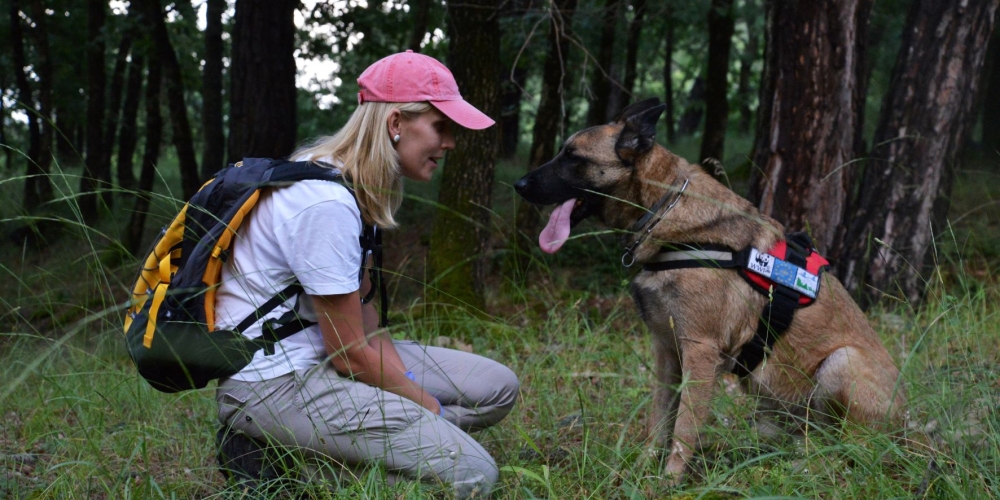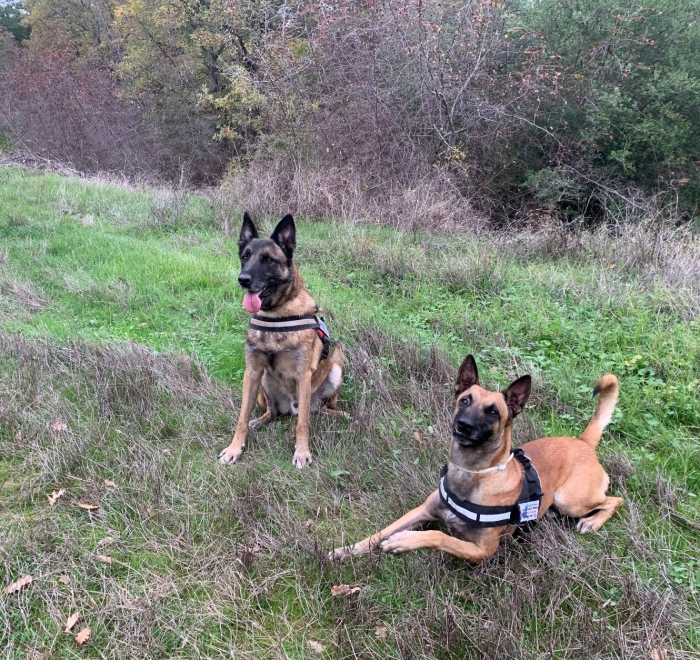
A team for the detection of poisoned bait in Thrace
The abundance of wild animals, especially the larger mammals, in a region like Thrace often leads to human-wildlife conflicts. Humans have always found some form of "natural" defences to use in reducing the damage caused by wild animals but, in recent years, the illegal use of poisoned baits to kill wild animals has become a serious danger.
Although the use of poisoned baits has been banned for almost 30 years, it unfortunately continues to be a very common practice in the countryside. The use of poisoned baits causes mass killings not only of target species, such as foxes, wolves, badgers and dogs, but also of many more endangered species of wildlife, for example the rare species of vultures. Of course, as a non-selective "method" of killing animals, it not only harms wildlife, but also affects working animals, such as dogs used to herd livestock and hunting dogs, thereby causing damage to rural economic activities.
The use of poisoned baits, in addition to the incalculable damage they cause to nature, also forms a direct risk to public health. The chemicals used to make these poisoned baits are highly toxic and are also dangerous to humans.
A television message against the poisoning of animals
The Society for the Protection of Biodiversity of Thrace (SPBT) created a TV clip with the purpose of raising awareness among the people of Thrace. The aim is for people to contribute to preventing the illegal use of poisoned baits by reporting to the relevant authorities any incidents they notice so that the users of illegal poisoned baits are discouraged from leaving them out in the environment where they are deadly for many animals.
Experienced team members

The SPBT Anti-poison Dog Unit consists of two specially trained dogs that can detect poisoned baits or animals that have been poisoned. The Team recently acquired a young member, Dalton, a specially trained dog who came to accompany Kiko, a veteran trained dog, who was inherited by SPBT from WWF Greece and who will soon be "retired" after 9 years of active service. In the autumn of 2021, Elzbieta Kret received a month's training in the handling of Dalton from a specialized Spanish trainer who had already prepared Dalton for the SPBT. Consequently, the organisation will be able to continue to offer the services of the detection unit, free of charge, in cases involving the illegal use of poisoned baits in the countryside of Thrace in order to protect both domestic animals and rare species of wild fauna.
The solution is in all of our hands
Informing and mobilising people plays a key role in dealing with the problem of poisoned baits. In this context, when anyone becomes aware of, or is informed about the illegal use of poisoned baits, it is necessary to contact the authorities of the Forest Service, Police or the National Park Management Agency. Also, the services of the Anti-poison Dog Unit of the SPBT are always available for people to use (contact phone: 2554032210).
